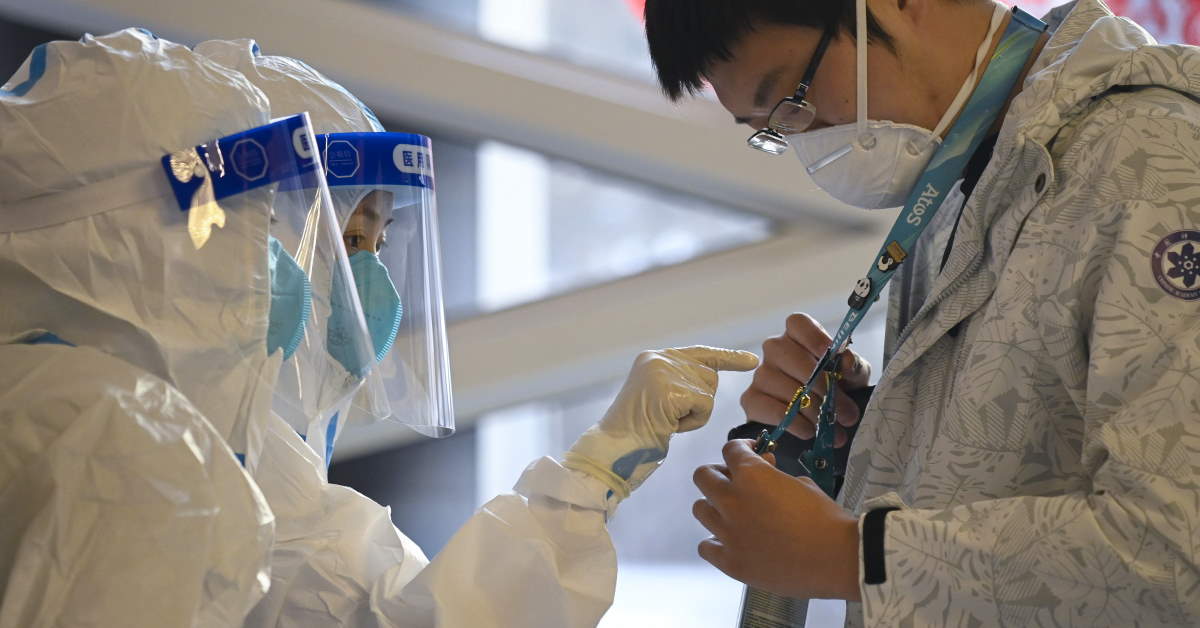China on Sunday imposed stay-at-home orders on millions more people in the country's northeast as it battles its biggest COVID-19 outbreak in two years.
The country has largely kept the virus at bay since it brought to heel its initial outbreak in 2020 using targeted lockdowns, mass testing and travel restrictions.
But the Omicron strain has broken through its defences in recent months and taken hold in multiple cities.
Jilin, the second-biggest city in Jilin province, will lock down about 4.5 million inhabitants for three days from Monday night, local authorities announced.
More than 4,000 new infections were reported across China on Sunday – with two-thirds in Jilin province, which borders Russia and North Korea.
Changchun, Jilin province's capital, said Saturday it would also tighten restrictions for three days.
Since 11 March, Changchun's nine million people have only been allowed out once every two days to buy food.
The new measures mean only medical personnel and other anti-epidemic workers will be authorised to leave their homes.
But restrictions are being eased in the southern tech hub of Shenzhen, which locked down its 17.5 million residents a week ago.
Public transport will resume fully from Monday, alongside some administrative and business activities, local health authorities said Sunday.
Non-essential businesses will remain closed however and the downtown Futian business district is still under strict anti-COVID measures.
Shenzhen is home to some of China's biggest tech firms, meaning any curbs on businesses come at a significant economic cost.
China on Saturday recorded its first two deaths from COVID in more than a year.
Tens of millions of people are currently in lockdown in other regions and authorities are rushing to create hospital beds, fearing the outbreak could put the healthcare system under strain.
Jilin province has built eight temporary hospitals and two quarantine centres.
East of the capital Beijing, the city of Tangshan banned traffic for 24 hours on Sunday in an effort to slow the virus' spread – and will test all its 7.7 million people.
